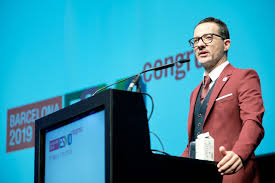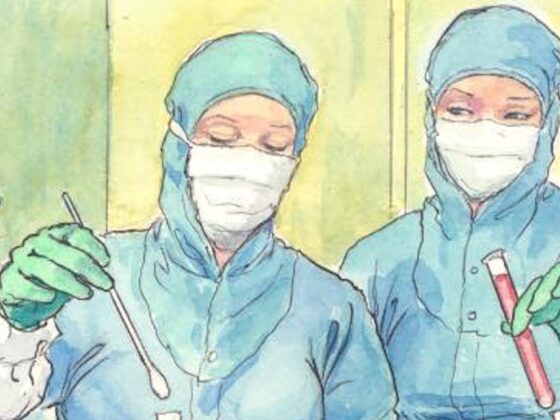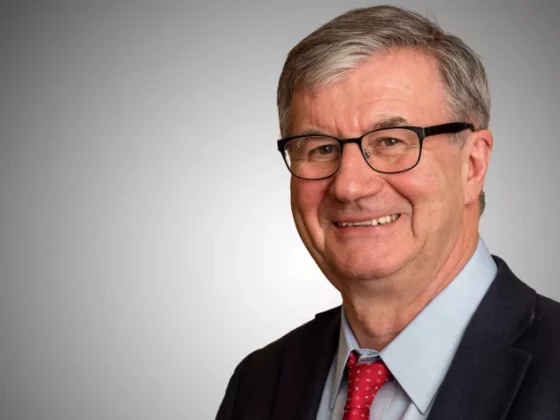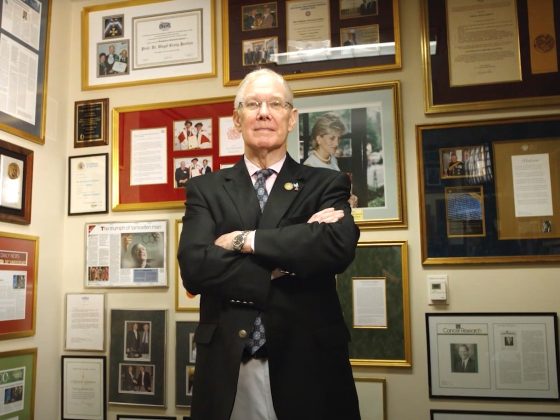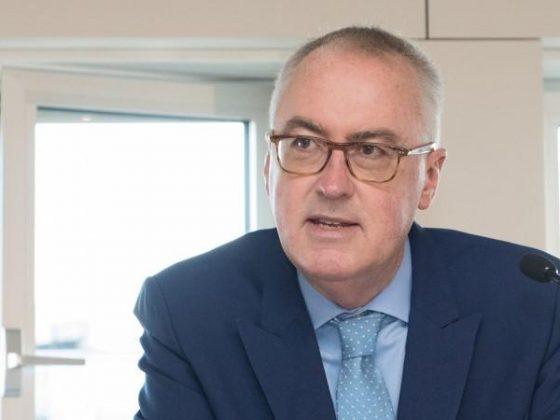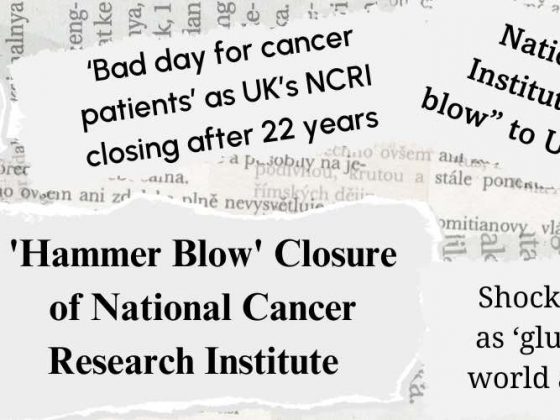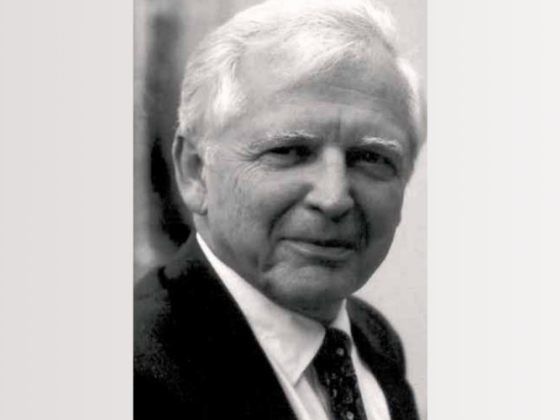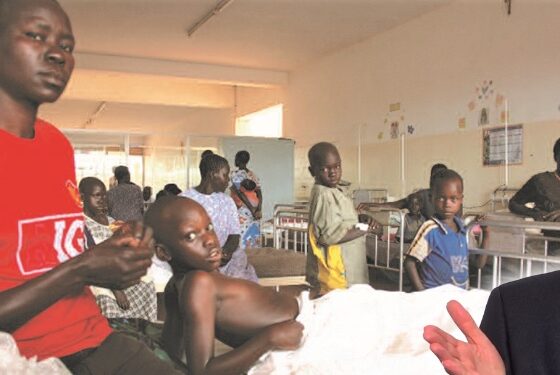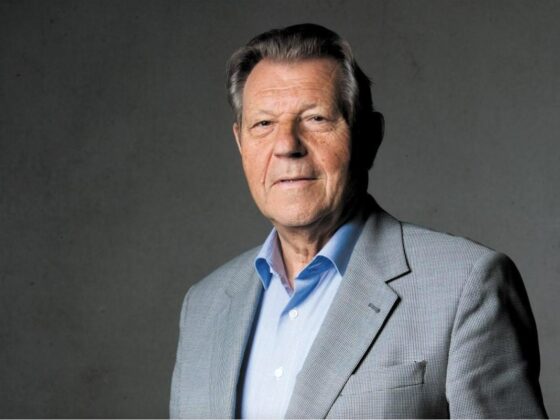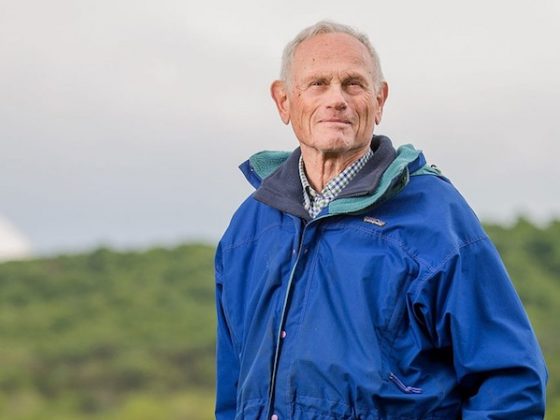Many tributes have been paid to Lynn Faulds Wood, the co-founder and first president of the European Cancer Patient Coalition (ECPC), who has died aged 72. She had a profound influence on giving voice to European cancer patients and advocates at a time when they lacked power in pressing for better care and treatment.
Speaking truth to power – an expression meaning confronting authorities with often unwelcome news – was Lynn’s speciality in the field of consumer affairs. She first wrote for UK newspapers and magazines, and then appeared on TV, in particular the BBC’s Watchdog programme, exposing issues such as poor product safety and animal welfare ‒ on occasion at direct personal risk, as she was threatened and physically attacked.
When she was diagnosed with colon cancer in her early 40s, and with a young son, she turned her attention to the factors affecting people’s treatment and care, the start of a personal and public journey that uncovered many shortcomings. It took a year for her diagnosis of a stage 3 tumour and, as this was before websites became established, there was little information available beyond what she could obtain from her own doctors.
Lynn was fortunate in not suffering a recurrence after surgery, and was able to return to her TV work. But as she told Cancer World: “I thought if I keep quiet about it, others may die… Looking back it was like the Dark Ages; the quality of colonoscopy was often poor and some of the surgery shameful. While we had some of the best surgeons we also had some of the worst, and the poorer ones didn’t seem to know it.”
What followed were TV programmes about the role of the GP as gatekeeper, on diseases that affect women such as cervical cancer, and on Booby Moore, the England football World Cup winning captain who died of a colon cancer that had gone undetected for years. Lynn teamed up with Mike Thompson, a British surgeon, to develop evidence showing that colorectal cancer symptoms were different from those taught to medics.
She set up a colorectal (‘bowel’) cancer charity, and Lynn was clear that the role of charities and awareness campaigns must be positive and they should not spread fear. She was against slogans such as ‘Dying from embarrassment’ – “It wasn’t me being embarrassed, but my doctor failing to recognise my cancer.”
Lynn said there was a view that bowel cancer patients didn’t want to discuss their experience – “But you can’t shut me up about bowel cancer, and there are plenty of others like me”
Lynn championed changes in investigations for colorectal cancer, surgical audit, and identifying people with hereditary syndromes for participation in clinical trials – there was also a need for awareness and transparency around trials, and she was an early proponent of an open register. And of course there was involvement of patients at all levels. Lynn said there was a view that bowel cancer patients didn’t want to discuss their experience – “But you can’t shut me up about bowel cancer, and there are plenty of others like me.” She helped develop informed patients who could serve as advocates on oncology and policy committees, finding them at social events for example – but active bowel cancer patients are still more scarce than those with breast cancer, so this is still an issue.
Then in her seven years as president of ECPC, she was instrumental in helping to embed cancer policy in the European Union agenda, through initiatives such as MEPs Against Cancer, and discussions on how to continue the work started by the EU’s Europe Against Cancer programme, which led to successive European Joint Actions, starting with the crucial European Partnership for Action Against Cancer (EPAAC) and its successors, CanCon and iPAAC.
As a member of the European Colorectal Cancer Screening Guidelines Working Group, Lynn was instrumental in drawing up the European guidelines for quality assurance in screening and diagnosis. In general she felt that there was a major funding imbalance between the ends of the cancer ‘cycle’, with too little going towards prevention, screening and early diagnosis. She was pleased that England was among the first countries to institute a national colorectal cancer screening programme.
Establishing ECPC as the umbrella organisation for Europe’s advocacy groups was also a key aim that has been realised – three years after it was founded it already had 200 members. Today ECPC represents more than 450 member organisations, covering all 28 EU member states and beyond.
Lynn reached the highest levels in all walks of life, such was her energy and commitment. Apart from lobbying EU politicians, she managed to get Prince Charles to say ‘bottoms and bowels’ on TV, and was with Pope John Paul II when the first global digestive cancer campaign was launched at the Vatican. Among the videos she made is one showing her undergoing a colonoscopy.
Up until her death from a stroke, Lynn had been tweeting in support of cancer patients whose treatment had been delayed by Covid-19, while also suffering from another condition she helped to publicise, antiphospholipid syndrome (APS).
Lynn stepped down from ECPC after seven years, after differences about the direction of the organisation. She also turned down a British honour, the MBE – member of the British empire – objecting to the word ‘empire’ and speaking out against cronyism.
But in 2014 she appeared at ECPC’s 10th anniversary meeting in Bucharest to remind people why the organisation was set up, and about its achievements and goals. ECPC’s adopted motto – ‘Nothing about us, without us’ – is the no-compromise legacy that Lynn leaves to the cancer advocacy movement and there has been no more formidable champion of integrity and equality.


